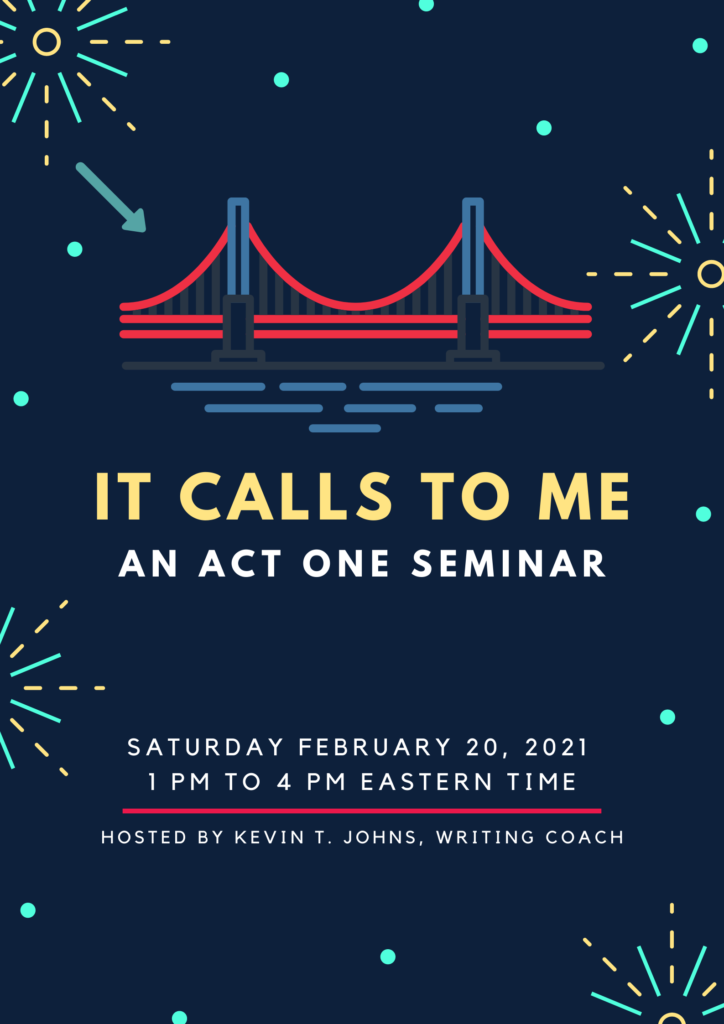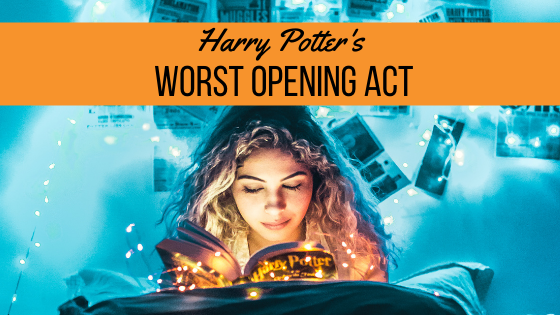Over the last year, I have been reading aloud the entire Harry Potter series to my daughter. It’s been delightful to revisit those novels.
As one of the most popular book series of all time, the Harry Potter stories are filled with loveable characters, unique ideas, and unforgettable moments.
After an unbelievably good first book, Rowling consistently ups her game for the following three books.
Chamber of Secrets is better than Philosopher’s Stone, Prisoner of Azkaban is better than Chamber of Secrets, and Goblet of Fire is better than Prisoner of Azkaban.
As a writer, Rowling just gets better and better every single book for four books straight!
But then we come to Order of the Phoenix . . .
The opening act of Rowling’s fifth Harry Potter book is not great.
There.
I’ve said it.
You might have fond memories of that book, but revisit it and you’ll see what I mean.
Where did the opening of that story go so wrong?
First off, the stakes are unclear.
Dumbledore has cut off all communication, and no one will tell Harry what is going on, including Ron and Hermione. It is difficult for the reader to understand the stakes at play because we, like Harry, don’t know what forces are at work or who wants what.
Next up, Harry has no agency.
The Ministry of Magic puts Harry on trial, Mrs. Weasley wants one thing for him, while Sirius Black wants another. For page after page, Harry is pulled here and there by forces entirely out of his control.
It’s not heroic. It’s Kafkaesque.
Another problem with the book’s opening is that, well, Harry is kind of a dick.
Harry is filled with rage and frustration and lashes out at everyone and everything around him, including the people who love him most. The tone is unrelentingly gloomy, and Harry is just not fun to be around.
If you’re reading the book as an angry teenager, you can probably relate to 15-year-old Harry, but for everyone else, his behavior is just distancing and unlikeable.
Yet another problem with the book’s first act is the pacing.
Structurally, the book spends way too long in its first act.
For most Harry Potter books, the first act ends when Harry gets on the Hogwarts Express and heads off to Hogwarts. In The Order of the Phoenix, however, Harry doesn’t arrive at Hogwarts until Chapter 11.
Taking 11 scenes to get to Act II is fine, but Rowling structures her books around chapters made up of multiple scenes strung together by mini-connector scenes. We’re over 30 scenes into the book before the story really gets started.
Sure, many of those scenes are great and memorable, but overall the opening just feels so sloooooooow.
(Did Rowling really need to spend a couple thousand words of act one on a scene where Harry, Hermione, and Ron just do household chores at Grimmauld Place? Probably not.)
Am I suggesting J.K. Rowling didn’t know what she was doing, or that she doesn’t understand the foundations of solid writer’s craft?
Not at all.
She knew exactly what she was doing.
Having written four insanely successful novels, she now had the personal confidence (and likely corporate leeway) to break free from the traditional forms of standard popular storytelling for her fifth book.
In Order of the Phoenix, as a writer, she is experimenting more than ever before. Some of those experiments work, but some of them clearly don’t.
That’s the problem with straying too far from the established conventions of commercial storytelling. The more you do so, the more you risk missing your mark.
It’s what Shawn Coyne calls “the Story Bell Curve.” If you want to increase the chances of writing a book readers will love, stick to what works.
Now, what exactly is it that makes a story “work”?
What are the things you should do during the first act of your story to increase the chances readers will love it?
That’s what I am going to be covering at my upcoming seminar, It Calls to Me – An Act One Seminar.
If you want to learn how to craft opening acts that draw readers in and keep them turning pages, you’ll want to be there.
At the seminar, we are going to cover how to:
- utilize archetypes to quickly establish characters and encourage viewer identification
- align your story beats to the Hero’s Journey in order to ensure maximum story impact
- continually and effortlessly raise the stakes before the real adventure has even begun
- execute the five commandments of storytelling
- elegantly establish world-building without info-dumping
- and much more!
We will be examining the first act of Disney’sfilm Moana in detail, and we will also review examples from the first act of other fan-favorite films, including:
- Harry Potter and the Philosopher Stone
- The Matrix
- Star Wars: A New Hope
- The Wizard of Oz
This is a live online seminar, so there will be lots of time for questions and interactions.
You’ll leave the seminar ready to apply these massively important storytelling concepts to the first act of your novel or screenplay.
But the learning doesn’t end there.
After the seminar, you will be invited to share with me the first act of your manuscript (up to 20,000 words). I will review your first act personally and then provide you with a one-page analysis filled with tips, suggestions, and recommendations for improvement so that you can kick your book off with the best opening possible.
It Calls to Me will be taking place live via Zoom on Saturday, February 20, 2021.
This is your opportunity to learn how to implement the fundamental technique J.K. Rowling build the Harry Potter empire upon.
I’ll see you there.


